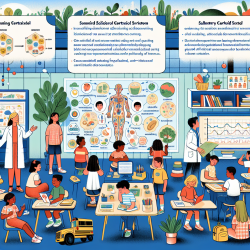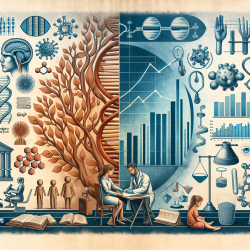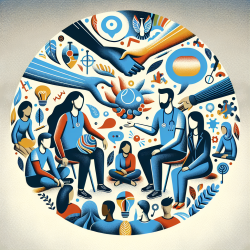The field of organ donation and transplantation is complex, involving numerous stakeholders and intricate processes. However, a recent research paper titled A Conceptual Framework for Evaluating National Organ Donation and Transplantation Programs, authored by Johnston-Webber et al., offers a comprehensive framework that can guide practitioners in improving these programs. By understanding and implementing this framework, practitioners can significantly enhance the effectiveness of organ donation systems, ultimately improving patient outcomes.
The Power of a Conceptual Framework
A conceptual framework serves as a blueprint for understanding and evaluating complex systems. In the context of organ donation and transplantation, such a framework identifies critical factors that contribute to the success of national programs. The framework developed by Johnston-Webber et al. encompasses 16 essential domains, each addressing different aspects of organ donation and transplantation. These domains are guided by three overarching health system principles: responsiveness, efficiency, and equity.
Key Domains of the Framework
- Government Support: Political backing and sustainable funding are crucial for program success.
- Public Trust: Building and maintaining public support through transparency and ethical standards.
- Quality Standards: Implementing quality improvement measures across all stages of donation and transplantation.
- Infrastructure: Ensuring adequate facilities, equipment, and staffing to meet current and future demands.
- Patient-Centered Care: Focusing on the needs of patients and their families to foster trust and cooperation.
Implementing the Framework in Practice
The framework is designed to be adaptable to various settings, allowing practitioners to tailor it to their specific context. By using this framework as a guide, practitioners can evaluate existing programs, identify service gaps, and develop targeted plans for improvement. The framework also emphasizes continuous quality improvement through ongoing evaluation and stakeholder collaboration.
Practitioners are encouraged to engage with this framework actively. By doing so, they can enhance their understanding of the factors influencing organ donation and transplantation success. This engagement not only improves individual skills but also contributes to the overall advancement of healthcare services.
The Call for Further Research
The development of this framework is just the beginning. Practitioners are urged to conduct further research to refine and expand upon these findings. Collaborative efforts between researchers, healthcare providers, policymakers, and other stakeholders will be essential in adapting the framework to diverse healthcare environments worldwide.
The journey toward improved organ donation and transplantation programs is ongoing. By leveraging research insights and fostering innovation, practitioners can play a pivotal role in transforming healthcare systems for the better.
To read the original research paper, please follow this link: A Conceptual Framework for Evaluating National Organ Donation and Transplantation Programs.










